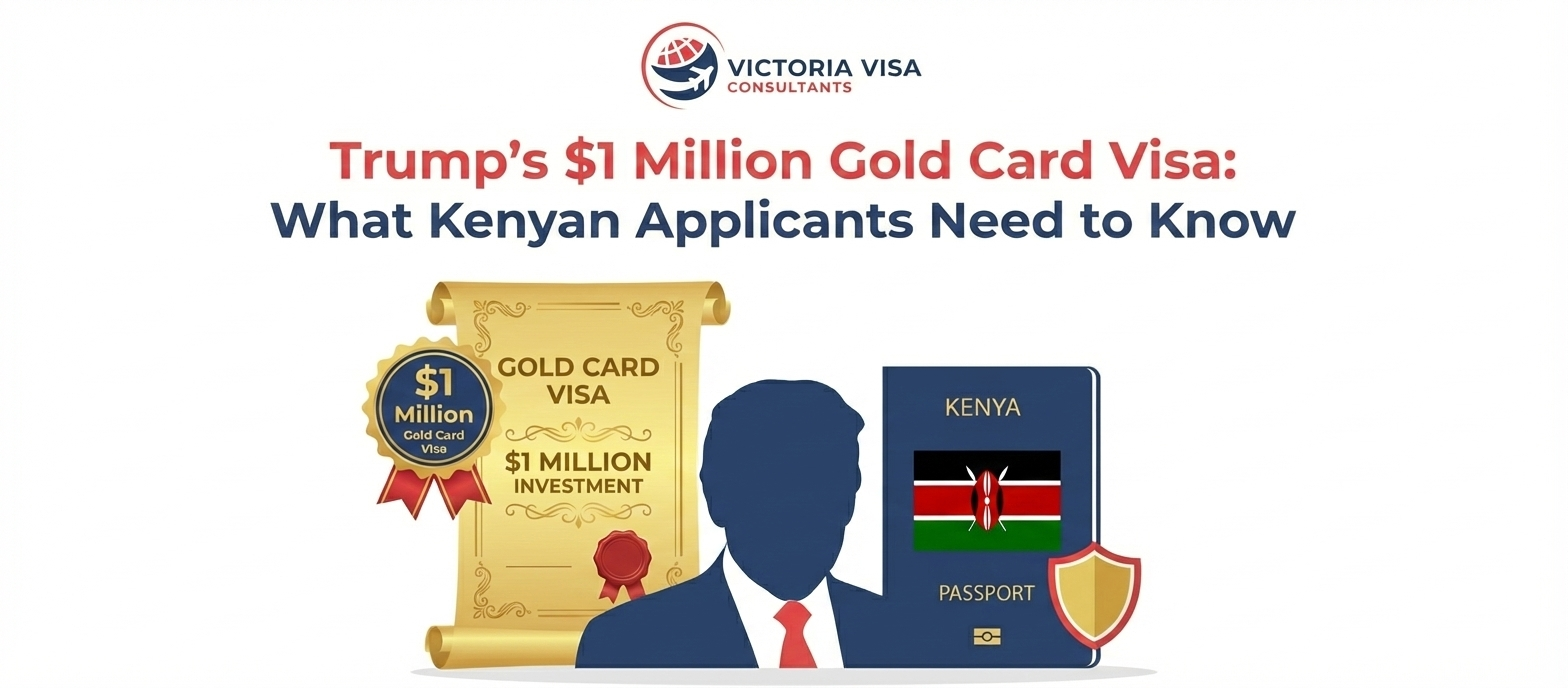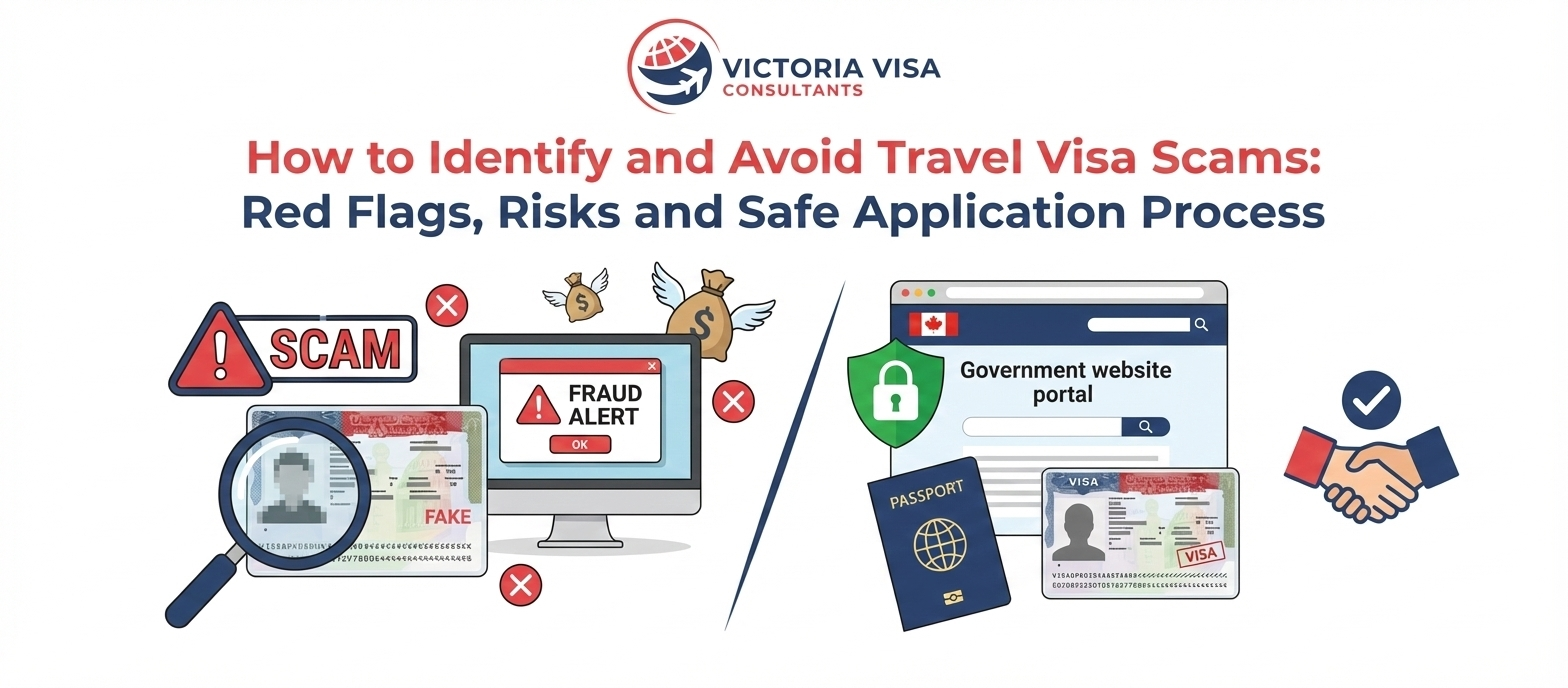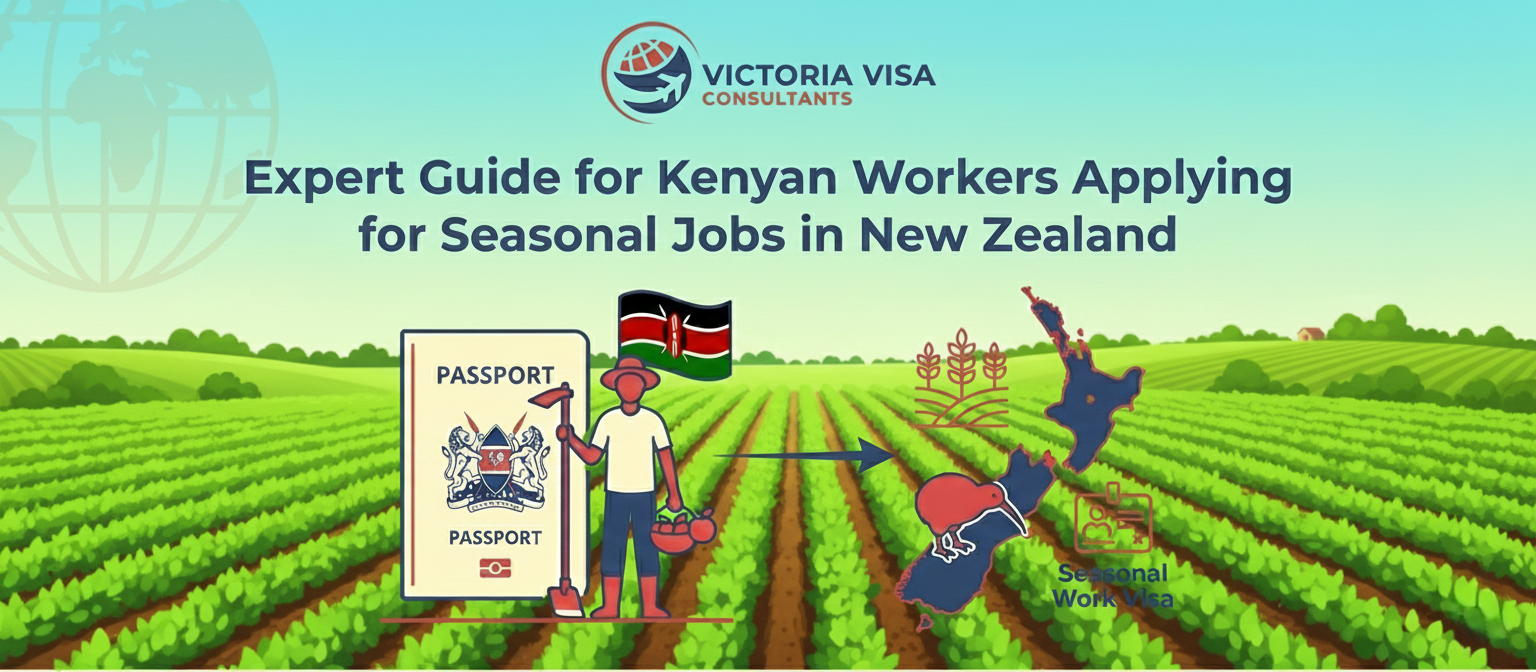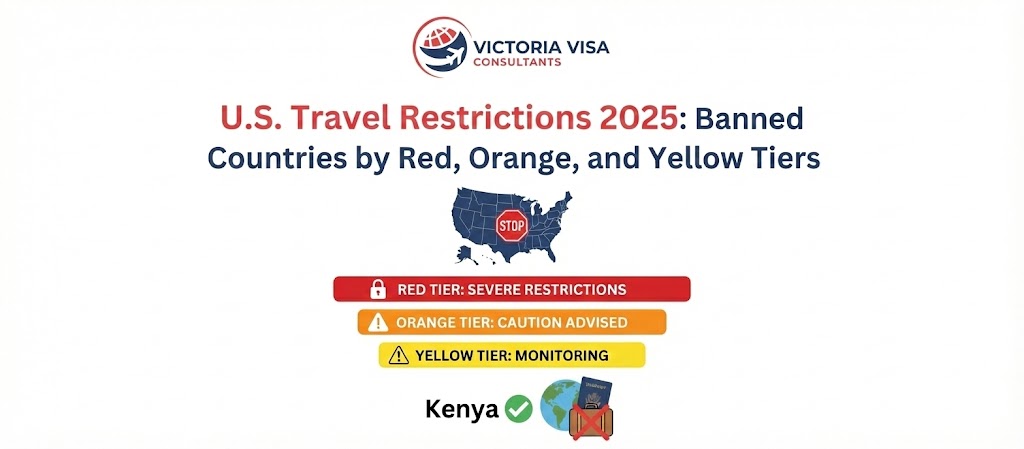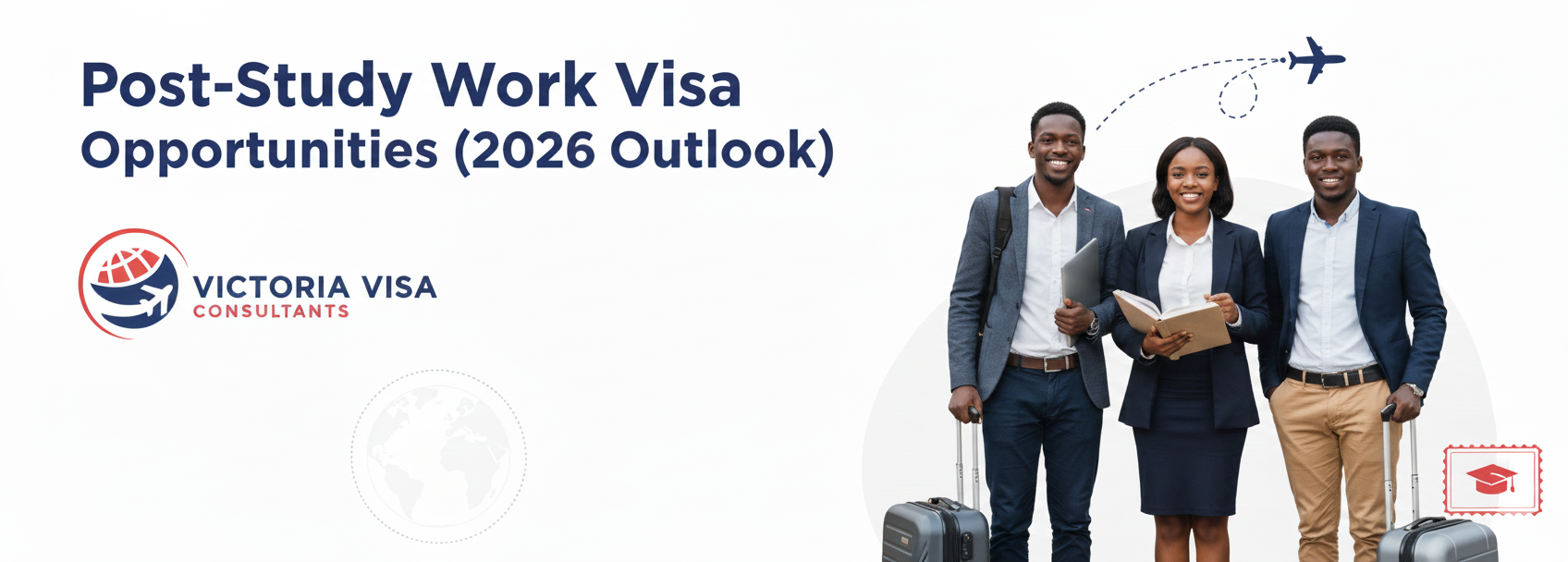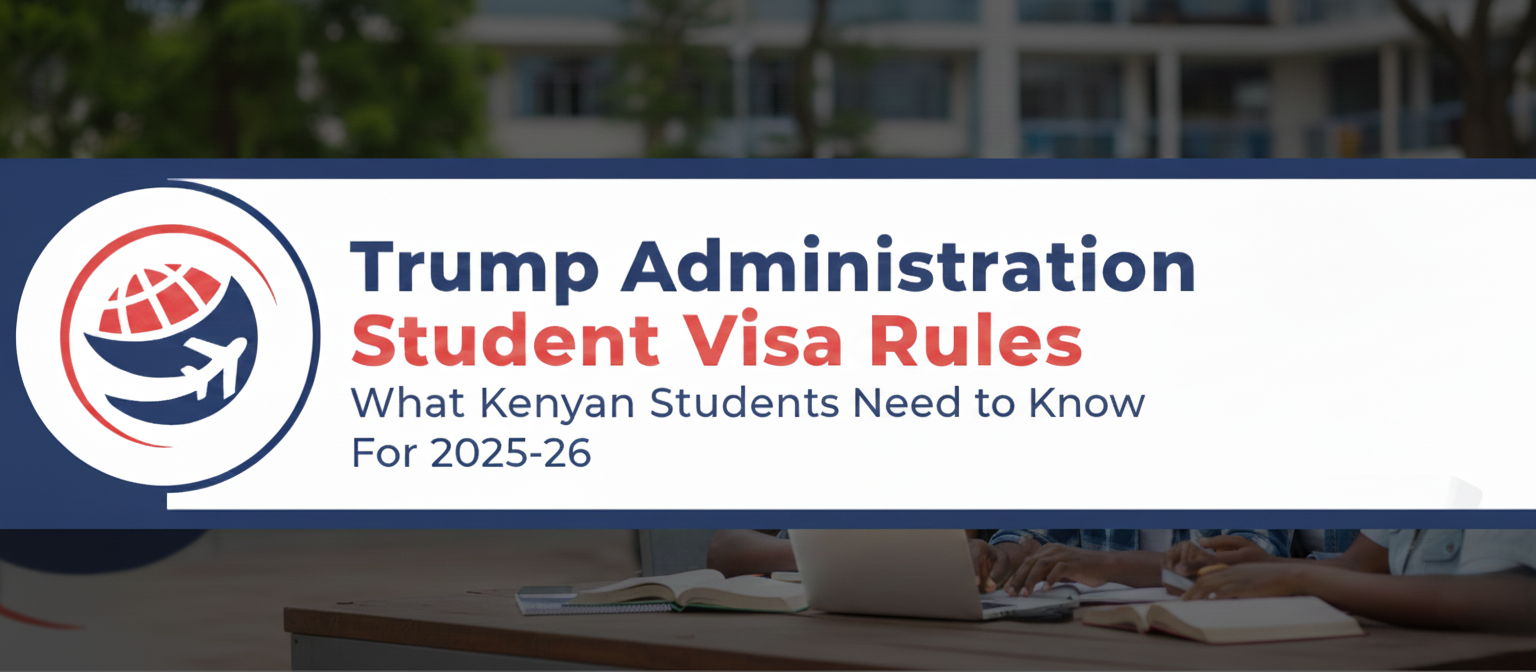How Kenyans Can Apply for a J1 Visa: Common Programs
Victoria Visa Blog

By Victoria Visa Consultants | July 2, 2025, 12:23 p.m.
If you’ve ever dreamed of working or interning in the United States while learning building international experience? J1 visa could be your golden ticket. For many young and ambitious Kenyans, the J1 visa can opens doors to incredible opportunities. From teaching in Americans classrooms to working in exquisite hotels in USA. Truth is, it very possible. However, the process can be daunting without the right guidance.
So, let's break down everything you need to know about the J1 visa: what it is, why it matters, how to apply, and which programs are most popular among Kenyans. Let’s dive in and explore how you can start your international journey through the J1 visa.
What Is a J1 Visa?
The J1 visa, officially known as the Exchange Visitor Visa, is a non-immigrant visa issued by the United States for individuals approved to participate in work-and-study-based exchange programs. Administered by the U.S. Department of State, the J1 visa is designed to promote cultural exchange and mutual understanding between the U.S. and other countries.
This visa isn’t just for one type of applicant. It includes multiple categories, such as: aupair, interns etc. For instance, the Teacher Exchange Program allows qualified educators to work in U.S. K-12 schools, while Hospitality Internships offer roles in resorts and hotels for students or recent graduates.
One key aspect of the J1 visa is that applicants must be sponsored by an organization authorized by the U.S. State Department. These sponsors help place applicants in programs, issue the necessary DS-2019 form, and offer support throughout the stay in the U.S.
The beauty of it is, you work and live in USA legally.
Why Should Kenyans Consider the J1 Visa?
For Kenyan youth and professionals looking to broaden their horizons, the J1 visa is a chance to gain global experience while enriching their cultural and professional skillset. Here’s why more and more Kenyans are taking advantage of this program:
1. Career Growth
Programs like the hospitality internship or teacher exchange give you hands-on experience in competitive environments. This international exposure can give your CV a significant boost and set you apart in Kenya’s job market.
2. Cultural Exchange
One of the core goals of the J1 visa is to encourage cultural sharing. You don’t just go to the U.S. to work—you also learn, teach, and grow through your interactions with people from all walks of life. It’s a mutual journey of learning.
3. Language and Communication Skills
Immersion in an English-speaking environment sharpens your language skills, builds your confidence, and strengthens your ability to communicate across cultures.
4. Networking and Friendships
Whether you're working in a resort in Florida or teaching in a classroom in Texas, you’ll meet people from around the globe. These relationships can turn into lasting friendships or even professional partnerships down the road.
5. Personal Development
Living and working abroad challenges you to be independent, resourceful, and adaptable. These traits not only help you succeed overseas but also mold you into a more confident, resilient individual.
All in all, the J1 visa is more than just a temporary opportunity—it’s a stepping stone to a brighter, more globally-connected future for Kenyan applicants.
General Requirements for Kenyans Applying for a J1 Visa
While the J1 visa is open to many, there are specific eligibility criteria applicants must meet:
1.Programs
Different programs under the J1 visa have different educational requirements. Who :
- A university student seeking practical training not available in your home country.
- An intern or trainee looking to gain professional experience in your field especially in hospitality, stem fields.
- A research scholar or professor aiming to collaborate with American institutions.
- A teacher eager to share your knowledge and experience the U.S. education system.
- An au pair ready to immerse yourself in an American family's life while providing childcare.
A camp counselor seeking a summer adventure filled with fun and responsibility.
2. English Proficiency
You’ll need to demonstrate a good command of English, both spoken and written. This is usually evaluated through interviews or standardized tests, depending on the sponsor.
3. Sponsorship
A key requirement is obtaining a U.S.-based designated sponsor. They’ll issue the DS-2019 form, which is essential for your visa application. Sponsors also help with placement, orientation, and ongoing support.
4. Proof of Ties to Kenya
You must prove to the consular officer during your interview that you intend to return to Kenya after your program. This can be done by showing strong family ties.
5. Health Insurance
The U.S. requires J1 participants to have health insurance for the entire duration of their stay. Some sponsors provide this, while others may require you to purchase it separately.
Step-by-Step Process for Kenyans to Apply for a J1 Visa
Applying for a J1 visa can be daunting. Here’s a simplified breakdown of what you need to do:
Step 1: Choose Your Program and Find a Sponsor
Identify which J1 category suits you. If you do not know where you fall, we will help you with that.
Step 2: Secure Your DS-2019 Form
Once you’re accepted into a program, your sponsor will issue a DS-2019 form, which is required for your visa application. You can’t apply for the J1 visa without this document.
Step 4: Fill Out the DS-160 Visa Application
Complete the online DS-160 application on the U.S. Department of State website. This form includes your personal details, education, and background info.
Step 5: Schedule Your U.S. Embassy Appointment
Book an interview at the U.S. Embassy in Nairobi. Be prepared to show your DS-2019 form, DS-160 confirmation page, passport, SEVIS fee receipt, and other supporting documents.
Step 6: Attend the Interview
Dress professionally and answer all questions honestly. The consular officer will assess your eligibility and intentions.
Step 7: Receive Your Visa and Travel
If approved, your visa will be stamped in your passport. Then it’s time to book your flight and attend your sponsor’s pre-departure orientation.
At Victoria Visa Consultants, we can assist with your visa assistance from visa application to interview preparation making the entire process smoother, quicker, and stress-free. To get personalized guidance, book an appointment at www.victoriavisaconsultants.com/book_appointment
